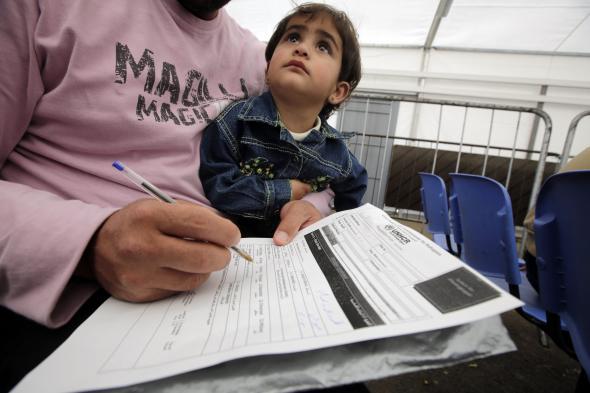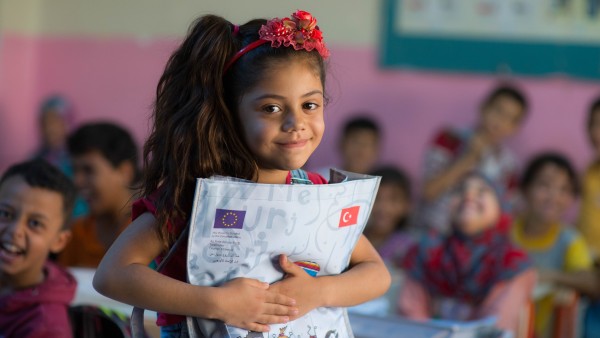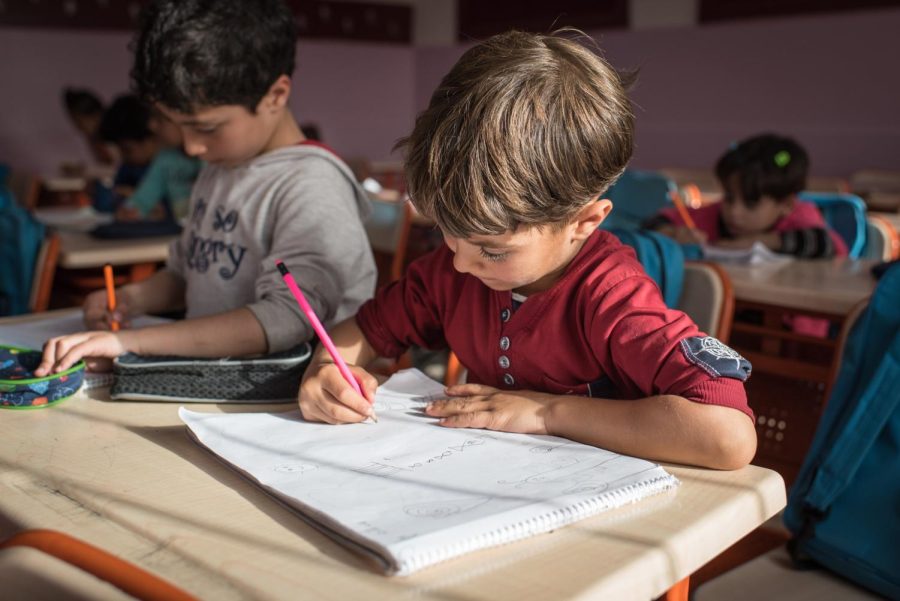Educating Refugees in The Middle Eastern Countries.
What is the problem
I speak from experience as I’ve lived in the Middle East for years and I faced the problem of educating refugees as a refugee myself for at least three years. Many people there couldn’t finish their education and even people who have been educated before, they couldn’t get a legal document that shows they are educated. There are 1.5 million school-aged Syrian refugee children living in Turkey, Jordan, and Lebanon, but approximately half of them do not have access to formal education. ( SOURCE LINK )

The problem is that the people want to learn but they do not have the ability because of wars and government rules .Syrian children are not automatically enrolled in school each year. Each fall, humanitarian groups must wait for the ministry’s official guidance in a question and answer document, which this year only came on November 29, before they can reach out to and support Syrian communities to enroll their children. In Jordan it’s not much better. starting from age 12, Syrian children’s enrollment drops significantly: only 25% of Syrian children ages 16-18 are enrolled in a secondary school in Jordan – a small percentage if compared to more than 80% of their Jordanian peers
Why the problem exist
Thousands of Syrian refugee children have been out of school, blocked by policies that require certified educational records, legal residency in Lebanon, and other official documents that many Syrians cannot obtain Syrian children are not automatically enrolled in school each year.

The Education Ministry should clearly and publicly announce that children can enroll in schools without Lebanese residency, birth registration, or Syrian government documents, and need
not provide evidence of previous formal education or certified non-formal education. Many Syrian children cannot obtain these documents, through no fault of their own. (SOURCE LINK) Another cause of the problem is population density and resource availability.
What is the result
Tardy Education Ministry decisions mean that many Syrian children may be unable to register by December 4. After more than two years of school closures and lost learning due to protests against government corruption and the Covid-19 pandemic, Syrian children face unprecedented risks of losing out on education, aggravated by poverty and child labor driven by Lebanon’s financial crisis, Human Rights Watch said. JORDAN (SOURCE LINK)
The 233,000 school-age Syrian refugees in Jordan face multiple obstacles to education that are most acute for children ages 12 and older, including poverty-driven child labor and child marriage, lack of affordable school transportation, government policies that limit access to education, and the lack of inclusive education that keeps children with disabilities out of school.
What are possible solutions to the problem?
 The Education Ministry should clearly and publicly announce that children can enroll in schools without Lebanese residency, birth registration, or Syrian government documents, and need not provide evidence of previous formal education or certified non-formal education. Many Syrian children cannot obtain these documents, through no fault of their own.
The Education Ministry should clearly and publicly announce that children can enroll in schools without Lebanese residency, birth registration, or Syrian government documents, and need not provide evidence of previous formal education or certified non-formal education. Many Syrian children cannot obtain these documents, through no fault of their own.
Donors should ensure that their education funds reach children ages 12 and older, and humanitarian education plans need to set clear enrollment, achievement, and other education targets for this age group, Human Rights Watch said. All children – whether migrants, refugees, asylum seekers, or stateless persons – have the right to access quality education without discrimination, including secondary education.
Secondary education for refugee children is overlooked and underfunded. Humanitarian education plans do not set secondary-school enrollment targets, and few donors – including the European Union’s Madad Trust Fund, a key source – report funding projects designed specifically for secondary-school-age children. From 2016 to the end of 2019, donors contributed US$356 million toward the $522 million that Jordan’s response plans budgeted for refugee education, Human Rights Watch calculated.
Call to action through UN SDG 4: LINK

